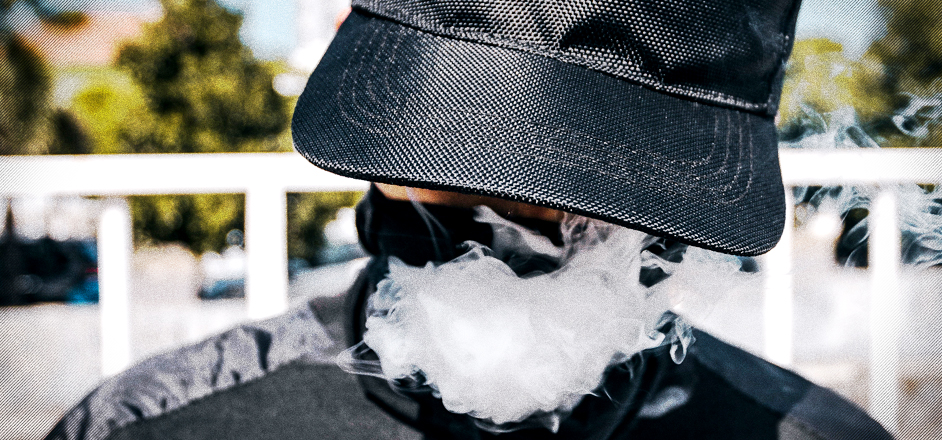SAN FRANCISCO (AP) — A major tobacco company is pumping millions of dollars into a campaign to persuade San Francisco voters to reject a ban on selling flavored tobacco products, including menthol cigarettes, certain chewing tobaccos and vaping liquids with flavors like cotton candy, mango and cool cucumber.
R.J. Reynolds Tobacco Co. has contributed nearly $12 million to the "No on Proposition E" campaign, filling television and radio airwaves and mailboxes with ads urging voters to reject a law supervisors approved last year that is now on the June 5 ballot.
By comparison, ban supporters have raised $2.8 million, including more than $2 million from billionaire former New York City Mayor Michael Bloomberg.
Supporters say a ban would help stop another generation from getting hooked on nicotine, but critics point out that California already raised the smoking age to 21 and say a ban would only drive sales underground.
San Francisco supervisors last year unanimously approved a ban on sales of flavored tobacco, saying the nicotine masked in flavors like mango, caramel and mint serve as starter products enticing kids to become smokers. Under the ordinance, smoke juices that taste like tobacco would still be allowed.
The ordinance was set to take effect in April but was put on hold after R.J. Reynolds collected enough signatures to put it on the ballot.
Other cities have passed laws reducing access to flavored tobacco and flavored vaping liquids, but San Francisco was the first in the United States to approve an outright sales ban. It also was one of the first to ban indoor smoking in workplaces, bars and restaurants.

The spending by Big Tobacco shows the industry fears a flavored nicotine ban in San Francisco could become a national trend, said Matthew Myers of the Campaign for Tobacco-Free Kids, which supports the ban.
The maker of Newport, the top-selling menthol brand in the country, also sells e-cigarettes. Health experts say the mint in cigarettes helps to coat the throat and eases the harshness of tobacco smoke, making it easier to become addicted.
R.J. Reynolds did not reply to requests for comment from The Associated Press, and the "No on Proposition E" campaign also declined to comment. Its ads, running in English, Spanish, Mandarin and Cantonese, say San Francisco's ban on flavored tobacco is akin to prohibition and would lead to a black market for vape products.
Small-business owners also oppose the ban, which they say will hurt business because people can still buy flavored "e-liquid" and tobacco products in neighboring cities or online. Businesses that violate the law could have their tobacco sales permits suspended.
Miriam Zouzounis, a board member of the Arab American Grocers Association, which represents 400 small-business owners in the San Francisco Bay Area, said the ban would remove an anchor product that attracts customers, many of which are immigrant-owned.
"If we don't have our customer's winter green chewing tobacco, he won't come in and buy the food or drink or other products that keep our doors open," Zouzounis said.
Dr. Pamela Ling, a professor of medicine at the University of California, San Francisco who studies how tobacco is marketed to young people, said that while smoking has decreased among teenagers, e-cigarette use is increasing, in part because of flavored nicotine products and novel vaping devices, including one made by San Francisco-based JUUL that looks like a thumb drive.
"A lot of kids wouldn't necessarily smoke a cigarette, but if you hand them a little JUUL or a vape and you tell them it tastes like cookies-and-cream or creme brulee, they will try it out of curiosity," Ling said.
JUUL did not respond to a request for comment from the AP.
Ling said there are thousands of nicotine-laced liquid flavors that are attractive to kids and teenagers who often don't know they are inhaling the stimulant, which is considered harmful to the developing teenage brain.
"You can buy the flavored tobacco product at any corner store, and it's just so easy and so accessible," Ling said. "At least banning the products that are most appealing to kids would give parents a fighting chance."
Zouzounis, whose family has owned a small store in San Francisco's South of Market neighborhood for three generations, said vaping stores and Hookah lounges will have to close their doors if the ban is upheld.
San Francisco politicians "are talking about having safe injection sites for drug users, they legalized marijuana, but they want to take away an already heavily regulated product out of the market?" she said, noting the age limit on tobacco buyers, plus the license and fees required to sell tobacco. "It just doesn't make sense."—OLGA R. RODRIGUEZ, AP



Leave a Reply
You must be logged in to post a comment.